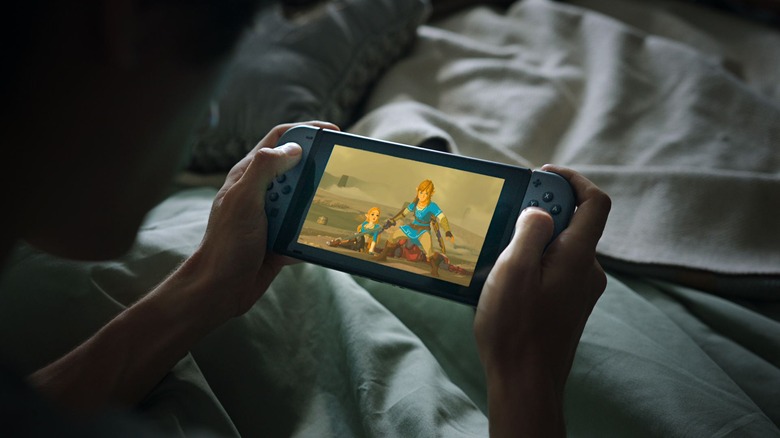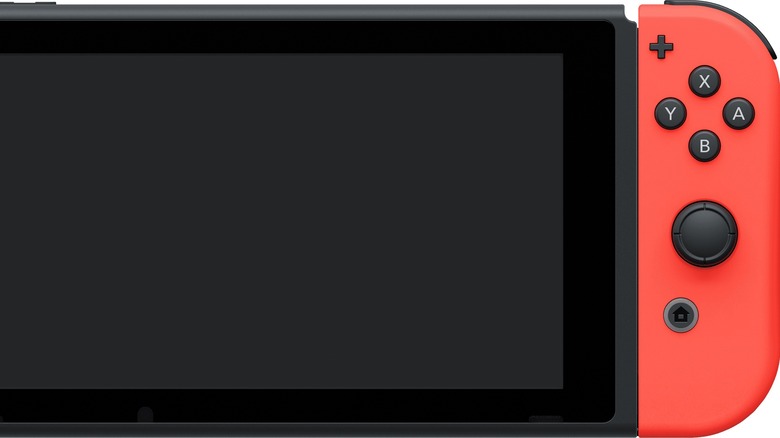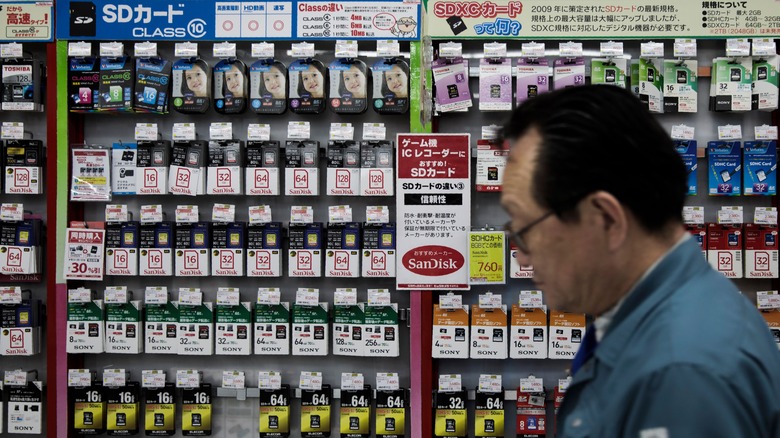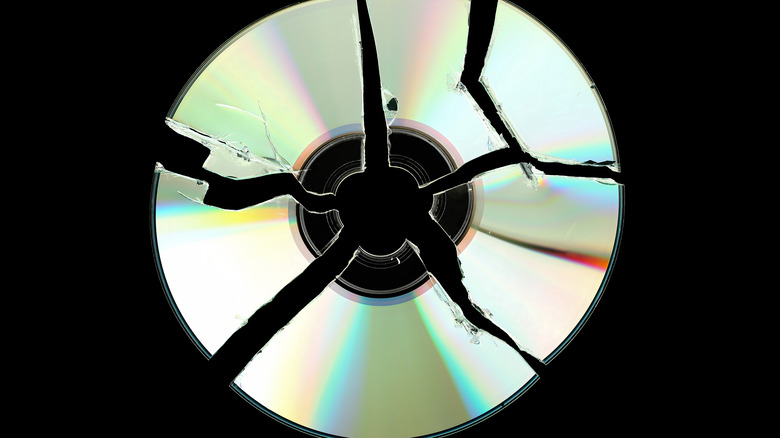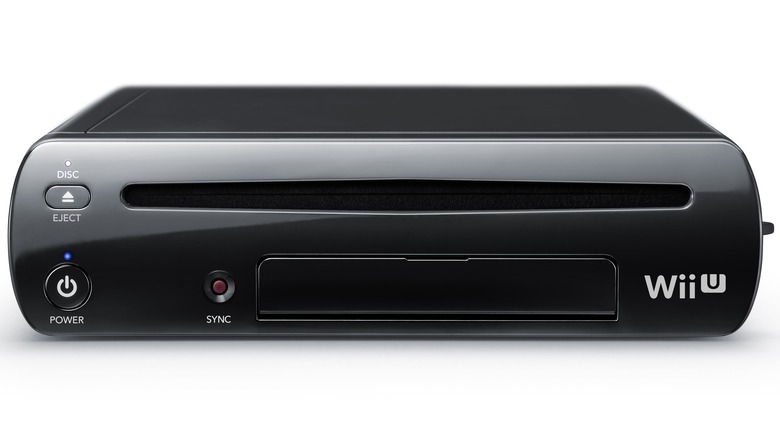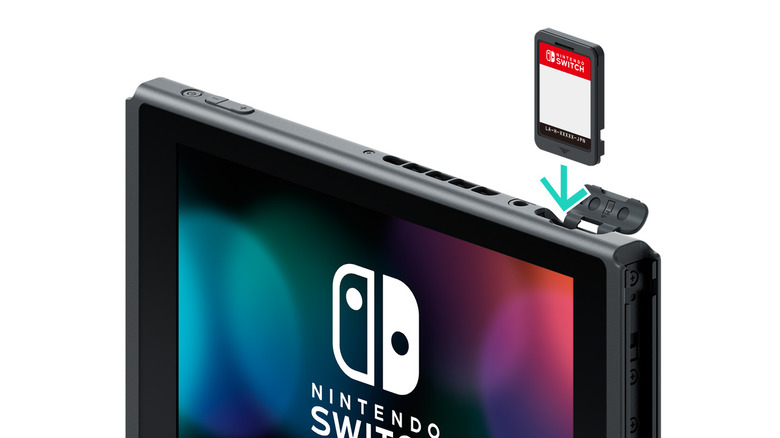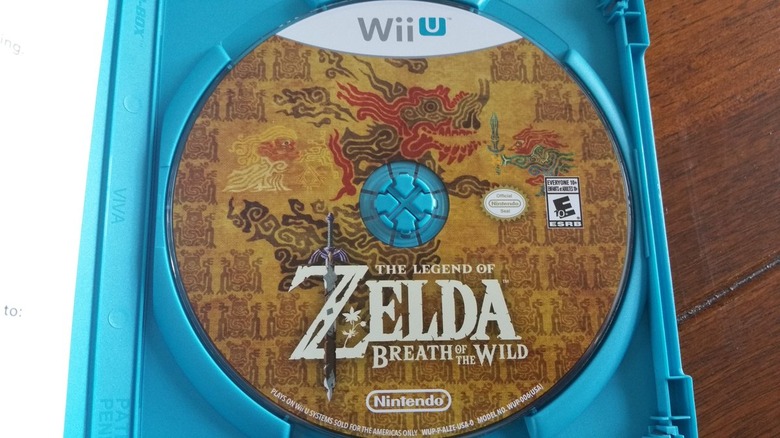The Real Reason Nintendo Ditched Discs For The Switch
After the failure that was the Wii U, Nintendo found itself at a crossroads. The company needed a hit. The question was, how would Nintendo approach the creation of its next console? Would it go something more traditional, like the GameCube and the consoles that came before that, or would it lean into the gimmicks that made the Wii a success but hampered the Wii U?
The answer, as it turned out, was both.
The Nintendo Switch is a gimmick in that it can act as both a home console and a handheld. But it's very traditional in the way it operates on both of those fronts. Simply pulling the machine from its dock transforms it from a home video game console into a handheld, and a big part of the reason the Switch pulls it off is thanks to its flash-based game cards.
But still, some wonder — why didn't Nintendo use discs for the Switch? Why the cartridges?
We were curious about this ourselves. So we dove in and took a good hard look at what might have crossed the minds at Nintendo when the decision was made. And we think we have all the answers.
So here they are. The real reason Nintendo ditched discs for the Switch.
There just isn't enough room
You can figure this one out by taking a good old-fashioned look at the Nintendo Switch itself. The Switch is blazing a path unlike other game systems on the market. It's a hybrid. Those who want to play The Legend of Zelda: Breath of the Wild on their huge 65-inch TV can do so. And those riding the bus who want to find a few power moons in Super Mario Odyssey can do that, too.
It's really the need for portability that makes discs a no-go.
The Nintendo Switch system would have to be a lot bulkier to fit a disc drive on board. And there would be all sorts of unintended consequences if the Switch used discs in that handheld state. Battery life would take a hit. And games would potentially experience loading issues if the discs "skipped" – much like your song might cut out on a Discman.
Those aren't the kinds of things you want on a portable gaming system. The Switch would probably be okay with discs in its docked state, but at that point, what's the big selling point? The Switch would lose its identity, and we'd probably be talking about its success in a very different way.
Flash storage has become cheaper
There's a reason home console makers got away from using cartridges. The disc format, for a long time, was incredibly cheap. Discs could be mass produced for very little, and that meant developers and publishers could spend less on printing the discs themselves and could keep more of the profit from a sale.
But something interesting has been happening recently. Flash storage prices have been dropping. And Nintendo noticed.
Now, that's not to say that developers and publishers aren't incurring costs by using the Nintendo Switch's game cards. But the flash prices have dropped significantly enough to where these flash-based game cards are viable enough for game companies to still make a decent profit. They can fit entire home console experiences — like Mario Kart 8 Deluxe – for a fraction of the flash storage cost from several years ago. And they can do so while maintaining the tiny footprint necessary to make the Switch a good portable.
There's a good chance that flash storage prices will continue to drop over time. So who knows — maybe Nintendo won't be the only company making use of flash in the future.
Games are less likely to get damaged
If you've been a home console gamer from the PlayStation era forward, you've probably experienced a catastrophe related to a disc at least once. Discs are optical media, which means the laser eye contained within a disc drive has to read data from the disc. The disc spins. The laser reads. And data is pulled into RAM, where your video game system goes to work showing you a game.
Any interruption in that process can mean instant failure. And one of those catastrophes can interrupt your gaming experience in a big way.
Is there a huge scratch on the disc? It could potentially obscure data your console needs to read. Did your disc break? Well, you can probably figure out why that's bad news. And discs can experience degradation such as disc rot over time. So even if you take good care of them, time will take a bite out of them.
The Nintendo Switch's game cards don't have these problems. They're incredibly tough to destroy. And like their cartridge counterparts from years past — we're looking at you, NES, SNES, and Nintendo 64 — they can stand the test of time.
If you hope to be playing your Nintendo Switch games years down the line, you should be happy Nintendo went with game cards.
Your optical drive can't fail if there's no optical drive
Believe it or not, discs aren't the only potential failure point when games are stored on optical media. There's a golden rule when it comes to technology: the more parts something has, the more likely it is to break. And that's especially true for moving parts like a disc drive.
Disc drives in game systems are known to stop working from time to time. And when that happens, it doesn't matter if your game disc is in pristine condition. You're not playing it.
Other game companies have handled this issue in different ways. Both the Xbox One and PlayStation 4 require you to install games to the hard drive, which means the Blu-Ray drive in those systems is used a lot less, leading to less wear. The Nintendo Switch addressed the problem by doing away with disc drives entirely. So not only do you get some other benefits that come with flash cartridges, you also get piece of mind in knowing that you'll never pop a disc into a Switch and get a dreaded "disc read error."
Flash offers faster data speeds versus discs
Back in the old days, disc-based game consoles were extremely slow to load games. You could hear the whir of the drive spinning up every time you loaded into a level, and the loading screen was often an opportunity to get some other things done. Need to use the restroom? Do it during the loading screen. Want to grab a quick snack? Wait for the loading screen. You'll have time.
But then digital games came along and ushered in the golden age of load times. And thank goodness for that.
The Nintendo Switch's game cards offer the best of both worlds. They're kept on flash-based storage, which means a disc drive doesn't have to search a disc far and wide for the data it needs. And the games load much faster as a result. But you still get the benefits of owning a physical copy of your game, so if you choose to sell it in the future, or if you want to lend a game to a friend, you can do that.
But more than anything, you'll love the load times. The Legend of Zelda: Breath of the Wild loads almost twice as fast as its Wii U counterpart. And over the course of a 40-hour adventure, that's a lot of time saved.
You may not get as many convenient bathroom or snack breaks. But you'll be in the game a whole lot faster.
Nintendo actually makes money from selling cartridges to publishers
As cheap as flash storage is these days, it's still not as cost effective as manufacturing a Blu-Ray disc. This makes developing for the Switch a little more expensive than it is for other consoles, and explains why some Switch games sit at a higher price point than their Xbox One or PlayStation 4 counterparts.
The higher development cost affects developers and publishers. But Nintendo? It makes out okay.
Here's a dirty little secret about the Nintendo Switch: Nintendo actually makes some money from the manufacturing of its proprietary cartridges, along with the licensing agreements companies must enter to create games for the system. Not only that, but Nintendo also requires publishers to price their digital games the same as their retail versions. So if a publisher charges more for a cart-based version of a game, the eShop version has to sit at that same price point — and Nintendo makes more on the digital sale as a result.
Nintendo makes money on just about every front. And the use of flash-based carts might not have hurt them in this instance. It might actually be helping.
Switch Game Cards are far more portable than discs
When gaming on a home console, you make some concessions. The system is bigger, more often than not because it packs more power. And you can forget about playing on the go. These are experiences built for your couch or your desk. With that in mind, the fact that these systems often use discs isn't really a big deal. Your games will likely be stored where your console is. You won't often tote your whole library around with you. Why would you have to?
That's not the case with the Nintendo Switch, which thrives on its ability to become a portable.
Nintendo Switch cards aren't much bigger than a quarter. You can fit a bunch of them in your pocket, like some loose change, and not have to worry about damaging them. They're super portable! If the Switch had gone with discs, you wouldn't be able to do that. You'd have to carry a bunch of cases around, or perhaps store all the discs in a sleeve. And then you'd have to live with the fear of scratching one by accident.
That's no way to live. When it comes to the Nintendo Switch, game cards were definitely the right move.

